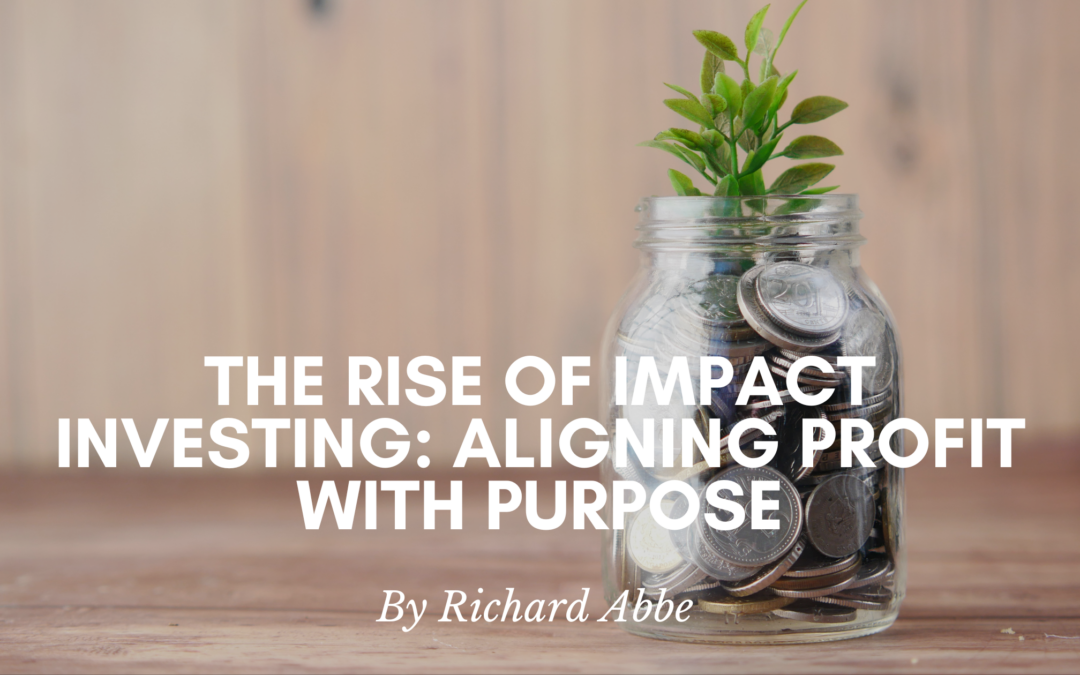In the finance landscape, a transformative shift is occurring, driven by a desire to impact the world positively. Impact investing, aligning financial goals with social and environmental objectives, is gaining momentum as investors seek to generate profit and positive societal change.
Defining Impact Investing
Impact investing goes beyond the traditional financial paradigm by incorporating social and environmental considerations into investment decisions. Investors actively seek opportunities that not only promise financial returns but also contribute to addressing pressing global challenges, such as climate change, poverty, and inequality.
Profit with a Purpose
At the core of impact investing is the belief that financial success and positive social or environmental outcomes are not mutually exclusive. Investors aim to achieve a double bottom line, generating financial returns and measurable, beneficial societal impacts. This alignment of profit with purpose is reshaping the investment landscape.
Diverse Investment Opportunities
Impact investing spans a wide range of sectors and industries. From renewable energy and sustainable agriculture to healthcare and affordable housing, impact investors explore diverse opportunities that address societal needs while delivering competitive financial returns.
Measuring Social and Environmental Impact
What sets impact investing apart is its commitment to measurable impact. Investors employ various metrics and frameworks to assess and track their investments’ social and environmental outcomes. This emphasis on accountability ensures that impact is not just a lofty goal but a tangible and quantifiable result.
Environmental, Social, and Governance (ESG) Criteria
Impact investing often integrates ESG criteria into decision-making processes. ESG factors assess a company’s environmental practices, social impact, and governance structures. By considering these criteria, impact investors aim to support businesses that align with their values and contribute positively to the world.
Mainstream Recognition and Institutional Adoption
Once considered a niche approach, impact investing is gaining mainstream recognition. Institutional investors, including pension funds and asset management firms, increasingly incorporate impact strategies into their portfolios. This widespread adoption signals a shift in the financial industry towards a more conscientious and sustainable approach.
Global Partnerships and Collaborations
The impact investing movement thrives on collaboration. Governments, philanthropic organizations, and private investors are forging partnerships to pool resources, share knowledge, and amplify their collective impact. This collaborative spirit enhances the effectiveness of impact initiatives on a global scale.
Positive Outcomes for Investors and Society
Impact investing challenges the notion that investors must sacrifice financial returns for the sake of societal impact. Numerous studies show that impact investments can be financially competitive with traditional investments, providing investors with the satisfaction of knowing their capital actively contributes to positive change.
Redefining Success in Finance
The rise of impact investing signifies a redefinition of success in the financial sector. Beyond mere profitability, success is measured by investments’ positive influence on communities, ecosystems, and global challenges. This paradigm shift challenges conventional views of success in finance.
Empowering Individuals to Drive Change
Impact investing empowers individuals to be active participants in creating a better world. By aligning their investments with their values, investors become catalysts for change, influencing industries, corporations, and policies toward a more sustainable and socially responsible future.
The rise of impact investing represents a transformative shift in the financial landscape, emphasizing the potential for profit and purpose to coexist. As investors increasingly recognize the power of their capital to drive positive change, impact investing is poised to become a driving force in shaping a more sustainable and equitable world. By aligning financial goals with social and environmental objectives, impact investors are redefining success in finance and contributing to a brighter and more resilient future for generations to come.

